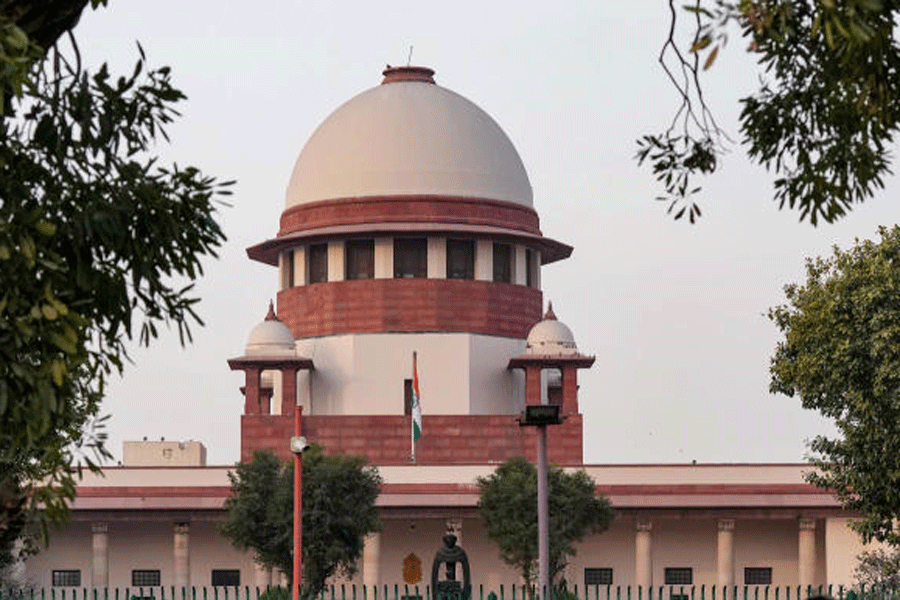The Supreme Court on Thursday questioned the Uttar Pradesh government’s logic in opposing the bail plea of a person accused of demolishing a house with a bulldozer, asking if the administration was willing to accept that “bulldozing houses is a wrongful act” and stop taking such action.
The Yogi Adityanath government has frequently used the bulldozer to decimate the houses of “criminals”, earning the chief minister the monicker of “Bulldozer Baba”, sparking allegations that the BJP dispensation was actually targeting critics and minorities, and leading to the replication of such action by at least one other state ruled by the party.
On Thursday, the Uttar Pradesh government had opposed the bail plea of Fashath Al Khan, facing criminal prosecution for allegedly demolishing in October 2016 the house of a family that had been living on the land of an orphanage in Rampur district.
Justice Sanjay Kishan Kaul, heading the bench, asked Uttar Pradesh additional advocate Ravindra Kumar Raizada during the hearing: “So, Mr Raizada, now you agree that bulldozing houses is a wrongful act! That means then you will not follow the principle of bulldozing houses?”
The bench, which also had Justice Sudhanshu Dhulia, further asked: “Should we then record your statement that you are now saying that bulldozing of houses is wrong, because you have just now argued that bulldozing houses is wrong?”
The state government law officer smiled and said he was confining his arguments to the present case and his brief was limited only to this matter. “Your Lordships, my prayer is limited to this case. This is my brief, I do not want to exceed that,” Raizada said.
The counsel for Khan, the accused, submitted that the multiple FIRs registered against him were politically motivated and Allahabad High Court had erroneously taken into consideration other alleged offences while cancelling bail.
The Supreme Court set aside the high court order and restored the original order passed by the trial court on July 29, 2020, granting bail to Khan.
Khan had approached the apex court challenging the cancellation of bail by a single judge of Allahabad High Court on February 16, 2023.
“While considering a bail application, the nature of offence, material and evidence on record and the criminal history/ antecedents of the accused are to be considered. The impugned order granting bail to the accused-respondent would disclose that the learned trial court has not considered any of the relevant factors while enlarging the accused-respondent on bail,” the high court had said while cancelling bail.
“However, if the accused-respondent moves a fresh bail application, his bail application shall be considered and decided in accordance with law after considering the relevant factors. Any observation of this court while cancelling the bail of the accused-respondent, which was granted by the learned trial court vide order dated 29.7.2020, shall not have any bearing for fresh consideration of the bail application of the accused-respondent, after he surrenders or (is) arrested,” the court had added.
On July 10, another apex court bench of Justices B.R. Gavai and J.B. Pardiwala had said it would examine in September a plea for laying down the law on the validity of using bulldozers to demolish the houses of accused persons in criminal cases. The Jamiat-Ulami-I-Hind had alleged that Muslims were being particularly targeted.
Other than the Jamiat, the others who had filed the PILs against the increasing use of bulldozers included CPM leader Brinda Karat.
The petitions were filed early this year in the context of bulldozers being employed by the Delhi municipal authorities in Jahangirpuri to demolish houses of certain accused persons belonging to the minority community against the backdrop of the communal riots during Hanuman Jayanti celebrations.










